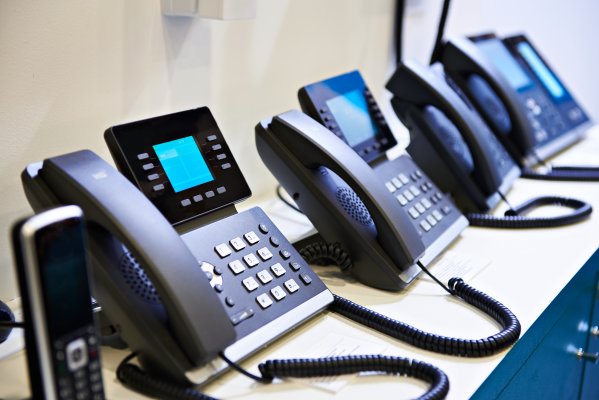VoIP stands for Voice over Internet Protocol. It is also referred to as Voice over IP or IP telephony. VoIP consists in a technology that allows you to make phone calls and transmit multimedia content over the Internet, removing the need of a traditional phone line.
VoIP works by sharing content through a digital network. Voice calls are converted from analog to digital, into packets of data using an IP phone (or analogue telephone adapter). Except for the situation in which the call is between 2 VoIP users, the signal will be converted back later to analog. Those packets of digitized data can be received by various recipients: they can get to traditional phone lines users, they can be received via public Internet networks or private Internet networks, by other VoIP users. Private networks are preferred, because they are more secure and the phone quality is better.
More simply put, you can use VoIP services to call other VoIP users, to call landline phones, cell phones or make computer to computer calls, using a microphone and a headset or speakers.
The fact that the signal is first converted to digital makes it possible for other features to be available, such as call forwarding, caller ID, fax, incoming/outgoing messages added to e-mail and more. You can send SMS texts over WiFi or mobile data.
Who invented VoIP
The man who made VoIP possible was Alon Cohen, a businessman and entrepreneur from Israel, cofounder of VocalTec Inc. In 1989 he invented an audio transceiver that later made VoIP possible.
VocalTec was the first company that offered Internet phone services in 1996.
Skype and Google Talk are considered a ‘newer generation’ of VoIP services and they offer free phone services.
There are 4 main types of VoIP phones: desk phones, wireless phones, softphones and IP conferencing phones.
Desk phones have a similar design to traditional landline phones, with the difference that they work via the Internet. They also have some new, improved features, compared to traditional landline phones.
Wireless phones are cordless and they have built-in WiFi or a DECT transceiver. The transceiver connects to a base or access point.
Softphones are basically programs/software installed on computers, which make it possible for the user to make phone calls through them. They are affordable, user-friendly and very popular for remote workers.
IP Conferecing phones also resemble traditional phones but they allow multiple participants to join the same call. They are most often used for business purposes.
We have doen a lot of testing to find out what the best VOIP for home and business usage is and we have a resounding answer with RingCentral. We have personally spoken with the reps from RingCentral and have had pretty in depth discussions about their offerings and services. Overall there wasn't anyone that could hold a candle to them so we suggest taking a look at them on our list of best voip providers in 2020.





